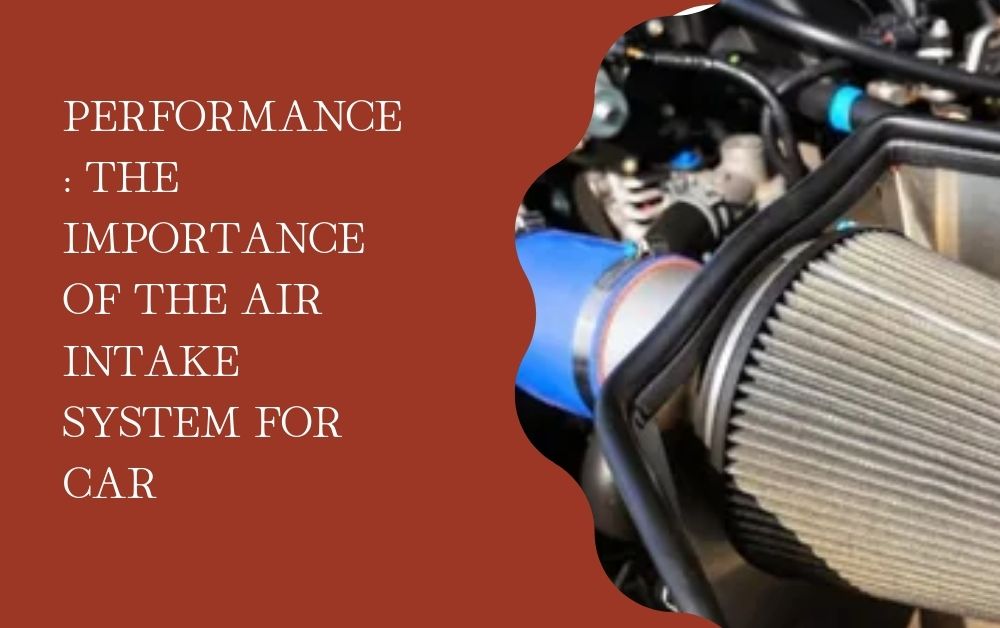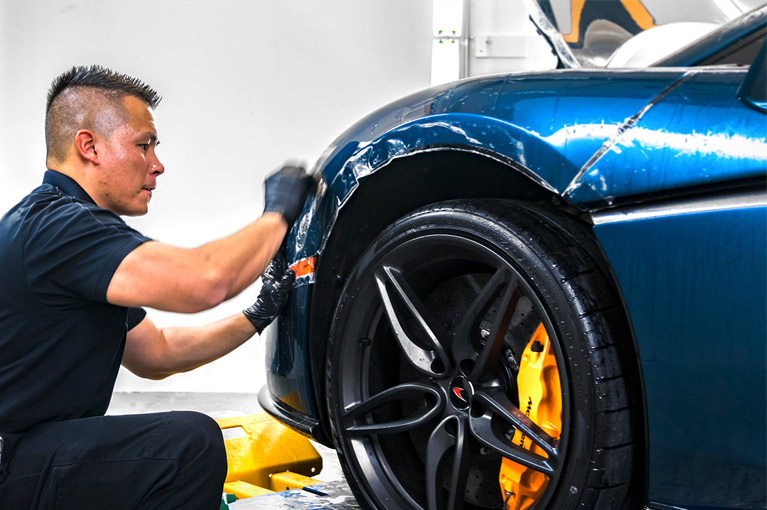
Your car is more than just a means of transportation; it’s a complex machine with numerous components working together to ensure smooth operation. One vital component that often goes unnoticed is the air intake system for car. Think of it as the lungs of your car, responsible for supplying the engine with the oxygen it needs to combust fuel efficiently.
What is an Air Intake System?
In simple terms, the air intake system is a pathway that allows air to enter the engine. It typically consists of a series of components, including the air filter, mass airflow sensor, throttle body, and intake manifold.
The Role of the Air Filter
The air filter is the first line of defense in the air intake system. Its primary function is to prevent dirt, dust, and other contaminants from entering the engine. A clean air filter ensures that only clean air reaches the engine, thereby optimizing performance and prolonging the life of internal components.
Understanding the Mass Airflow Sensor
The mass airflow sensor (MAF) measures the amount of air entering the engine and communicates this information to the engine control unit (ECU). The ECU uses this data to calculate the appropriate amount of fuel to inject into the engine, ensuring an optimal air-fuel mixture for combustion.
The Throttle Body: Regulating Airflow
Serving as the gateway between the air filter and the intake manifold, the throttle body controls the amount of air entering the engine based on driver input. By adjusting the throttle position, the engine can maintain the desired air-to-fuel ratio, enhancing performance and fuel efficiency.
The Importance of the Intake Manifold
Once air passes through the throttle body, it enters the intake manifold, where it is distributed evenly to each cylinder. A well-designed intake manifold promotes efficient airflow, maximizing engine power and torque output.
Why Does Your Car Need a High-Quality Air Intake System?
Now that we understand the components of the air intake system, let’s delve into why investing in a high-quality system is essential for your car’s performance.
Improved Engine Efficiency
A high-quality air intake system ensures that the engine receives a steady supply of clean, oxygen-rich air. This allows for more efficient combustion, resulting in improved fuel efficiency and reduced emissions.
Enhanced Horsepower and Torque
By optimizing airflow into the engine, a premium air intake system can unlock additional horsepower and torque. This translates to better acceleration and overall performance, especially during high-speed driving or towing heavy loads.
Extended Engine Life
A clean and efficient air intake system not only improves performance but also helps protect the engine from premature wear and damage. By filtering out harmful contaminants, such as dirt and debris, the system prevents abrasive particles from entering the engine and causing internal damage.
Signs of a Failing Air Intake System
Like any other component in your car, the air intake system is subject to wear and tear over time. Here are some common signs that indicate your air intake system may need attention:
Decreased Engine Performance
If you notice a decrease in engine power, sluggish acceleration, or poor fuel economy, it could be due to a clogged air filter or other issues within the air intake system.
Unusual Engine Noises
Strange noises, such as whistling or hissing sounds, coming from the engine bay could indicate a leak or malfunction in the air intake system.
Check Engine Light
A illuminated check engine light on your dashboard could be triggered by a faulty mass airflow sensor or other issues related to the air intake system.
Maintaining Your Air Intake System
To ensure optimal performance and longevity of your air intake system, it’s important to follow a regular maintenance schedule. Here are some tips to keep your system in top condition:
Regularly Replace the Air Filter
Check your car’s owner’s manual for the recommended interval for replacing the air filter, and be sure to adhere to it. A clean air filter is essential for preventing debris from entering the engine and causing damage.
Inspect for Leaks
Periodically inspect the air intake system for any signs of leaks or damage, such as cracked hoses or loose connections. Addressing these issues promptly can prevent further damage and ensure proper engine operation.
Clean the Mass Airflow Sensor
Over time, the mass airflow sensor may become dirty or contaminated, affecting its accuracy. Use a specialized cleaner to gently remove any debris and restore optimal performance.
Consider Upgrading to a Performance Air Intake System
If you’re looking to maximize your car’s performance, consider upgrading to a performance air intake system. These aftermarket systems are designed to improve airflow and deliver noticeable gains in horsepower and torque.
Conclusion: Breathing New Life into Your Car
Your car’s air intake system plays a crucial role in its overall performance and longevity. By understanding its components and importance, you can take proactive steps to maintain and optimize your system for years to come. Remember to regularly inspect and replace components as needed, and consider upgrading to a performance system for an added boost in power and efficiency. With a healthy air intake system, you’ll breathe new life into your car and enjoy a smoother, more enjoyable driving experience.
For more insightful articles related to this topic, feel free to visit incnewsblogs








